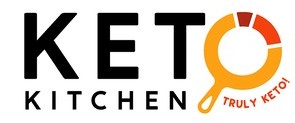Vegan proteins: tofu, tempeh, seitan, and other low-carb vegan “meats”
Low-carb greens: spinach, mizuna, kale, watercress. Other low-carb vegetables – cauliflower, broccoli, zucchini, bell peppers, asparagus, etc
Mushrooms: enoki, shimeji, shiitake, king oyster, etc.
Plant-based “dairy”: full-fat coconut milk, unsweetened coconut yogurt, coconut cream, vegan cheese, unsweetened nut milk, etc.
Nuts: pistachios, macadamia nuts, almonds, etc.
Seeds: pumpkin seeds, pumpkin seeds, etc.
Low-carb, low-glycemic fruits: avocado, blackberries, raspberries, and other low glycemic berries
Sea vegetables: kelp, dulse, etc.
Fermented foods: Kim Chi, natto, sauerkraut, etc.
Sweeteners: monk fruit, erythritol, stevia, erythritol, and other plant-based keto sweeteners
Oils and fats: coconut oil, avocado oil, MCT oil, truffle oil, olive oil, etc.
For a more detailed guide on these low-carb foods and their nutritional breakdowns, we have a page for it. Check-out our Ketogenic Diet Food List to get the comprehensive list and their macro info.
By eating foods from the “Do Eat” list, you can follow a vegan Keto diet and meet most of your nutritional bases. They provide all macronutrients (carbs, fats, and proteins) without packing up carbs.
Also, most of your foods while on a vegan Ketogenic diet come from this list, so have this list handy.
I admit. Making every Keto recipe without animal products vegan takes some effort. But with some easy food swaps and some careful planning, you can organize most keto recipe out there!
Sample 1-day Keto Vegan Meal Plan
The rest of the text is on the next page




Leave a Comment